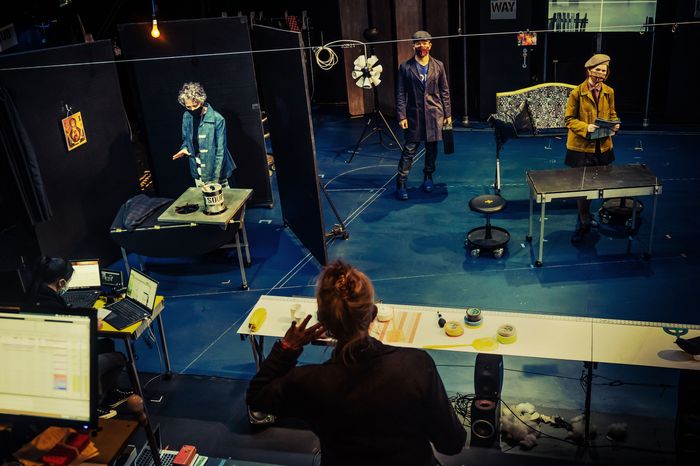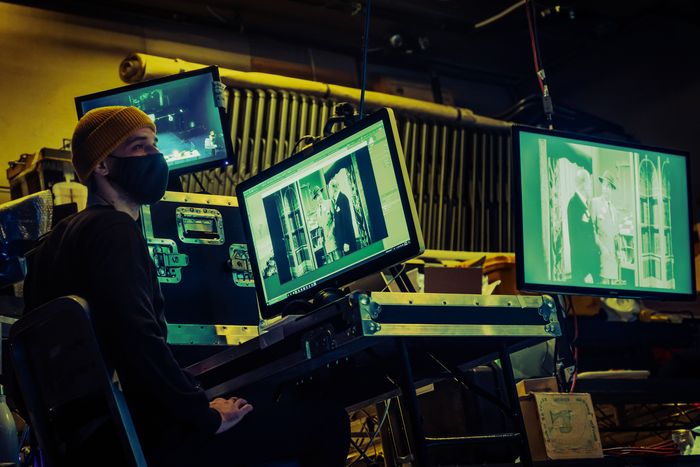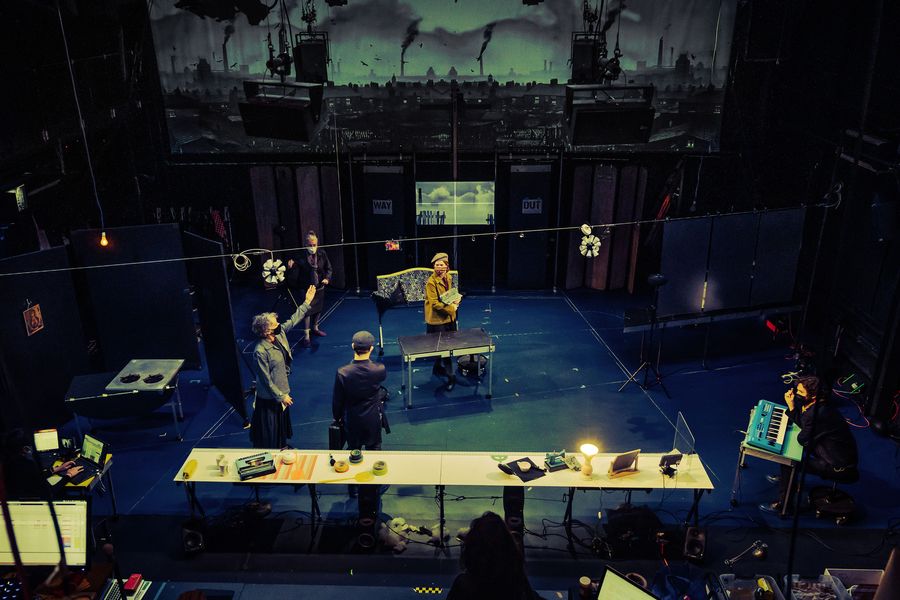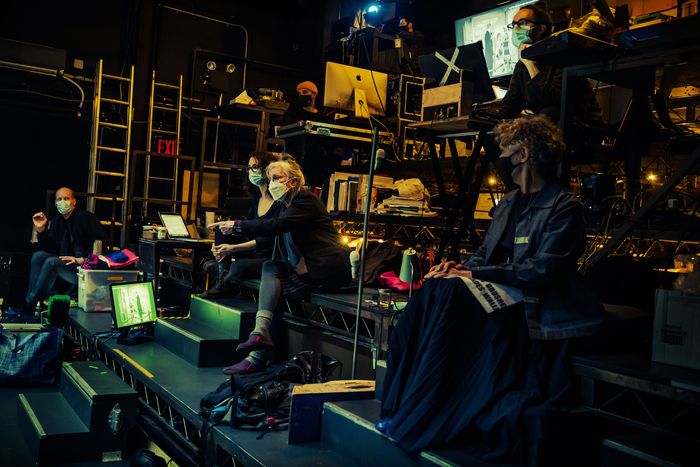The members of the 46-year-old Wooster Group are the monks of New York theater. TheyÔÇÖre our holy fools, who ÔÇö even when no one is watching ÔÇö keep the artÔÇÖs sacred fires burning. Rehearsal isnÔÇÖt so much a preparation-to-show as it is a kind of religious practice ÔÇö as endless, deliberative, and open to inspiration as a Shaker meeting.
Could COVID stop them? Certainly every other theater in New York was shut down. But ensconced in its longtime home, the Performing Garage, the group has continued doing what it always does. Even without quarantine, Wooster productions can take years to develop, since theyÔÇÖre the product of collaborative composition, meticulous study, and skill acquisition. For Poor Theater (2004), the ensemble trained as modern dancers; for La Didone (2009), the Woosters learned to sing opera. For their latest work, they did their own translation of Bertolt BrechtÔÇÖs Lehrst├╝ck, or ÔÇ£learning play,ÔÇØ The Mother, about an old woman heeding the Marxist call to revolution. Before COVID, they were examining the German text painstakingly, word by word. ÔÇ£It became quite obsessive-compulsive even for us,ÔÇØ says Ari Fliakos, an actor with the company.
The Mother was about to premiere in Vienna this past June when the pandemic struck. At first, unable to gather at all, the Woosters suspended operations on the production. Director Liz LeCompte and actor Kate Valk worked with various performers over Zoom to come up with something new. They tried a mash-up of Daniel SchreberÔÇÖs Memoir of My Nervous Illness and Governor CuomoÔÇÖs daily news conferences; sometimes they worked with Fliakos as well as frequent collaborators Maura Tierney and Frances McDormand. In September, though, the core group was able to return to work on The Mother.
The material began to blossom and alter under pandemic limitations. LeCompte, says Fliakos, ÔÇ£got inspired being at home and watching ÔÇÖ30s [James] Cagney films, postÔÇôsilent era, fast-talking. She loved imagining how the Brecht would sound with that as an inspiration.ÔÇØ The group often incorporates movement languages ÔÇö Kabuki gesture, modern dance ÔÇö into staging, and now the choreography of distancing protocols have become another such discipline.


The Woosters are again planning a trip to Vienna in June with the piece. It will, eventually, be performed in New York. Whenever it does, context will have changed it once again. When the group began working on it, nearly two years ago, BrechtÔÇÖs play might have seemed militant, a rallying cry. How will the fragile, ferocious mother at its heart appear after more than a year without contact with our own parents? It might well become a memorial to the elderly weÔÇÖve lost ÔÇö or an ode to the ones who kept going.
*A version of this article appears in the March 1, 2021, issue of New York Magazine. Subscribe Now!




